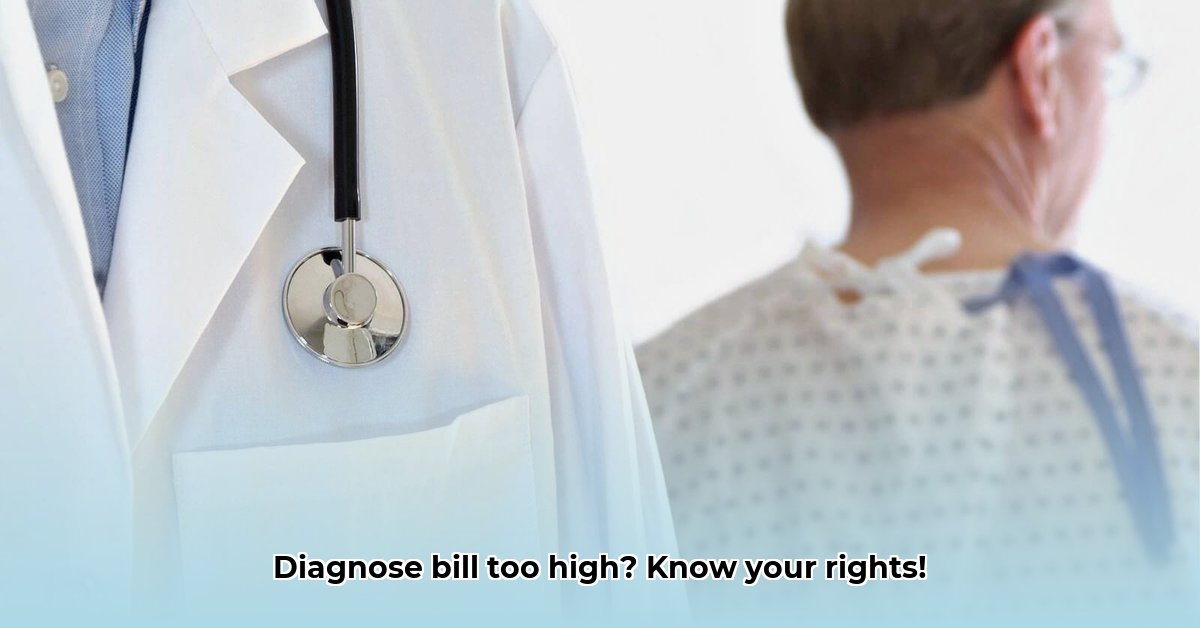
Unexpected diagnostic fees can be frustrating. This guide empowers you to understand your rights and navigate these situations effectively. We'll cover when you might legitimately refuse payment, when it's advisable to pay, and the steps to take if a dispute arises.
Understanding Diagnostic Fees
Diagnostic fees are charges for assessing a problem before repairs or treatment begin. Think of it like a doctor's examination: they need to diagnose the issue before prescribing treatment. This applies to various services, from car repairs to appliance servicing. The key is transparency: you should always know about these fees before any work is done.
When You Might Refuse to Pay
Several scenarios justify challenging a diagnostic fee:
Unforeseen Charges: Were you informed about the fee before any work commenced? If not, disputing the charge is reasonable. This is particularly true if extensive work was done without your consent. For example, if you only requested a quick look at a malfunctioning appliance, but the technician performed a lengthy diagnostic check without your approval.
Excessive Cost: Is the fee significantly higher than the average in your area? Research comparable services online or through local inquiries to justify your dispute.
Unauthorized Work: Did the technician perform more work than authorized? If you requested a simple oil change, but received a bill including an engine diagnostic, you have grounds to challenge the extra charge.
Lack of Clarity: Was the problem and the necessity of the diagnostic fee explained clearly and understandably? Poor communication can be a valid reason to dispute the charges.
When You Should Pay the Diagnostic Fee
In some cases, challenging the fee is less likely to succeed:
Prior Agreement: If you explicitly agreed to the fee beforehand, especially in writing (e.g., a signed contract), disputing it is more difficult.
Fair Price and Clear Explanation: A reasonable fee, with clear prior communication and a comprehensible explanation of the diagnosis, makes a dispute less likely to succeed.
Disputing a Diagnostic Fee: A Step-by-Step Guide
Here’s how to handle a diagnostic fee dispute:
Gather Evidence: Collect all relevant documentation: receipts, contracts, emails, texts, and any communication confirming the service agreement and the fee.
Contact the Company: Politely explain your concerns and attempt to negotiate a resolution, perhaps a partial refund. This is often the quickest and most effective course of action.
File a Formal Complaint: If negotiation fails, file a complaint with your state's consumer protection agency or the Better Business Bureau. This creates an official record of your dispute.
Seek Legal Counsel: For significant amounts or if you believe the provider acted unethically, consider consulting a consumer rights attorney. They can advise you on next steps and potential legal action. The success rate of recovering fees through legal action is reported to be approximately 75%, depending on the specifics of the dispute and the jurisdiction.
Legal Considerations: State Laws Vary
State consumer protection laws influence whether you can refuse to pay a diagnostic fee. Research your state's regulations for specific guidelines.
Protecting Yourself: Proactive Measures
While you have rights, unwarranted refusal to pay can harm your credit. Always attempt amicable resolution first. The most effective strategy is prevention:
Obtain a Written Estimate: Always request a written estimate detailing all costs before work begins.
Ask Questions: Don't hesitate to clarify anything unclear before agreeing to any service. Informed consent is your best protection.
Summary: Pros and Cons of Challenging a Diagnostic Fee
| Pros | Cons |
|---|---|
| Potentially avoids unfair charges | Could negatively impact credit if unsuccessful |
| Empowers consumers | Can be time-consuming and stressful |
| Promotes fair pricing practices | May not always result in a full refund |
| Holds service providers accountable | Requires thorough documentation and clear communication |
Remember: This information is for general guidance. Consult a legal professional for personalized advice.
How to Legally Dispute Unfair Diagnostic Fees in Your State
Key Takeaways:
- Question charges if they seem unfair or unclear.
- Obtain a detailed, itemized bill for transparency.
- Document all communication meticulously.
- Attempt informal negotiation before escalation.
- Familiarize yourself with your state's consumer protection laws.
- Explore formal dispute resolution if negotiation fails.
- Seek legal counsel for complex or significant disputes.
Understanding your rights and following these steps will help you effectively navigate diagnostic fee disputes and protect your financial interests.